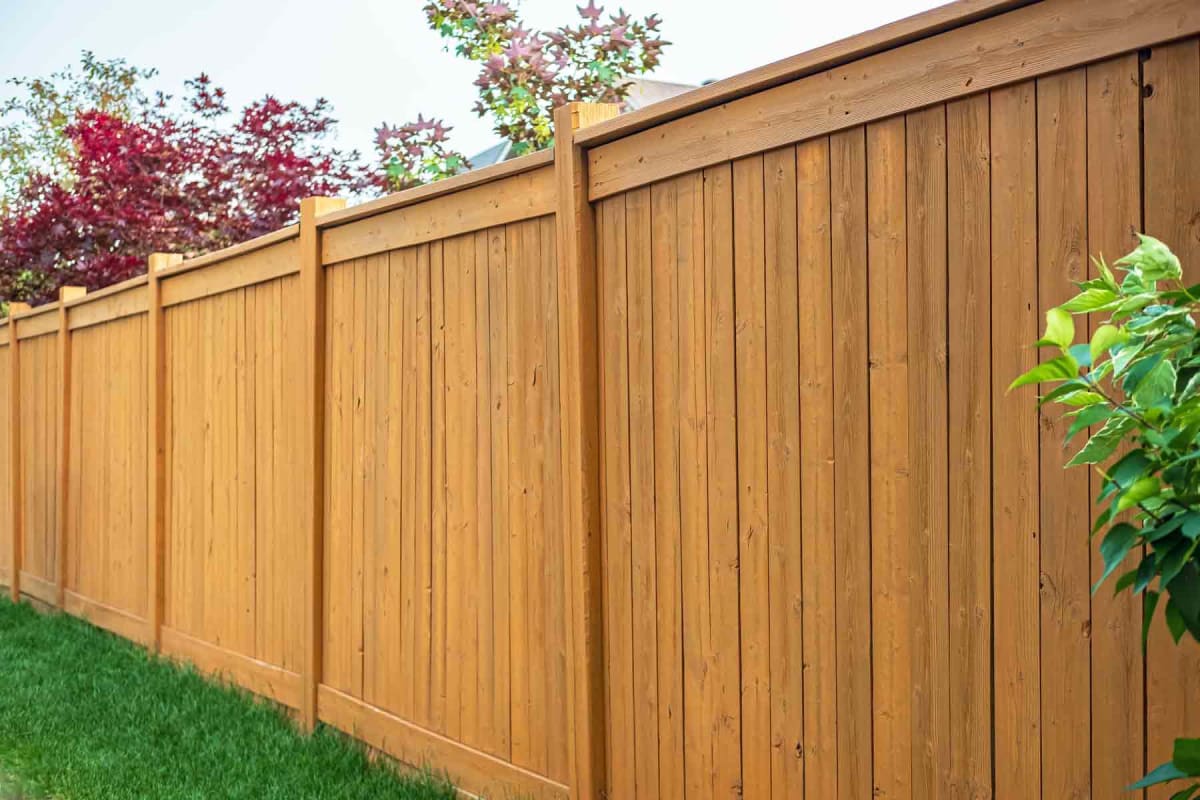All Categories
Featured

Selecting the ideal kind of fence for your residential or commercial property is a considerable decision that can influence both the aesthetics and capability of your room. Whether you're trying to find personal privacy, safety, or just an attractive feature, there are various factors to think about when selecting the excellent fence. Below are some crucial factors to consider to help assist your decision-making process.
- Figure out the Objective of the Fence. The first action in choosing the best kind of fencing is to clarify its purpose. Different fencings offer different functions, and recognizing your certain needs will certainly aid limit your choices. Think about the complying with:
Privacy: If you're seeking privacy, a tall and strong fencing such as wood or plastic will certainly protect against prying eyes from seeing right into your lawn. Security: For safety and security objectives, a strong, high fence constructed from aluminum or steel can deter burglars and offer comfort. Visual Allure: A decorative fencing made from functioned iron, light weight aluminum, or picket-style timber can add appeal and visual interest your residential property. Pet Dog or Pet Containment: If you need to contain pet dogs or animals, a strong fence like chain web link or wood may be essential to stop them from getting away. 2. Take into consideration the Product. When you have actually developed the fence's main objective, it's time to select the material. Each sort of product comes with its own set of benefits and obstacles. Below are some usual products to consider:
Wood: Wood fencings are versatile and personalized, using personal privacy and a traditional appearance. They're optimal for rural residential properties or typical homes yet require regular maintenance to protect against insect, bending, or rot infestation. Vinyl: Plastic fencings are low-maintenance, sturdy, and readily available in a selection of styles. They will not break, warp, or discolor, making them an excellent choice for those who desire a resilient, problem-free fence. Nonetheless, plastic can be a lot more pricey in advance than timber. Light weight aluminum: Light weight aluminum fences supply a sleek, modern-day appearance and are durable, rust-resistant, and need marginal upkeep. Nevertheless, they commonly do not supply as much personal privacy as timber or vinyl, as the slats are frequently spaced apart. Chain Web link: Chain web link fences are often made use of for safety and security or to have family pets. They are long lasting and cost effective, however they don't supply much privacy or aesthetic allure unless you include slats or privacy screens. 3. Consider the Climate and Upkeep Needs. Your region's climate can substantially affect the lifespan and maintenance requirements of your fence. Materials like timber may require added treatment to avoid rot or mold and mildew development if you live in an area with high humidity or regular rain. On the various other hand, vinyl and aluminum fences are immune to the aspects and require a lot less upkeep.
Furthermore, think about the amount of time and effort you want to commit to fencing maintenance. Wood fencings need regular staining or painting to preserve their look, while plastic and light weight aluminum need far much less upkeep.
- Think of Sturdiness and Lifespan. Consider just how long you want your fence to last. , if you're looking for a fencing that will certainly last for years with little upkeep, plastic and light weight aluminum are excellent selections.. While timber fencings can last 10-20 years with correct care, they might not withstand the test of time in addition to various other materials.
Additionally, consider your budget. Products like timber and chain web link often tend to be even more inexpensive upfront, while vinyl and aluminum have a tendency ahead with a greater first expense yet supply long-term resilience.
- Suit the Fencing to Your Residential Property Style. The sort of fencing you select must match the general look and feeling of your residential or commercial property. A well-chosen fencing can enhance your home's curb allure, while a poorly selected fence can interfere with it. :
Typical Houses: A timeless timber picket fencing or a functioned iron fence functions well with older, a lot more typical homes. Modern Residences: For a modern look, streamlined products like light weight aluminum or plastic can match contemporary architecture. Country or Farm Features: A wood or cable fencing may be perfect for rural buildings or farms, where functionality is equally as essential as visual appeals. 6. Check Regional Regulations and HOA Guidelines. Prior to making your last decision, inspect your regional zoning guidelines and any kind of HOA (Homeowners Organization) standards to make certain that your preferred fencing abide by elevation constraints, product requirements, and other regional legislations. Some locations have details policies regarding the look of fencings, particularly in domestic areas.

Conclusion. Selecting the right fencing for your building calls for mindful consideration of your requirements, spending plan, and the design of your home. Whether you're focusing on personal privacy, safety and security, or aesthetic appeal, there's a fence material and layout that will certainly match your requirements. By considering the variables detailed above, you can make an informed decision and choose a fence that will certainly enhance the functionality and elegance of your residential property for years to come.
Latest Posts
Reliable Tinley Park Roofing Contractors – Quality Roofing Services by Aabel Roofing
Published Nov 27, 24
3 min read
Selecting the Ideal Overhead Door for Your Home or Business
Published Nov 27, 24
1 min read
Eye Education Foundation
Published Nov 27, 24
1 min read